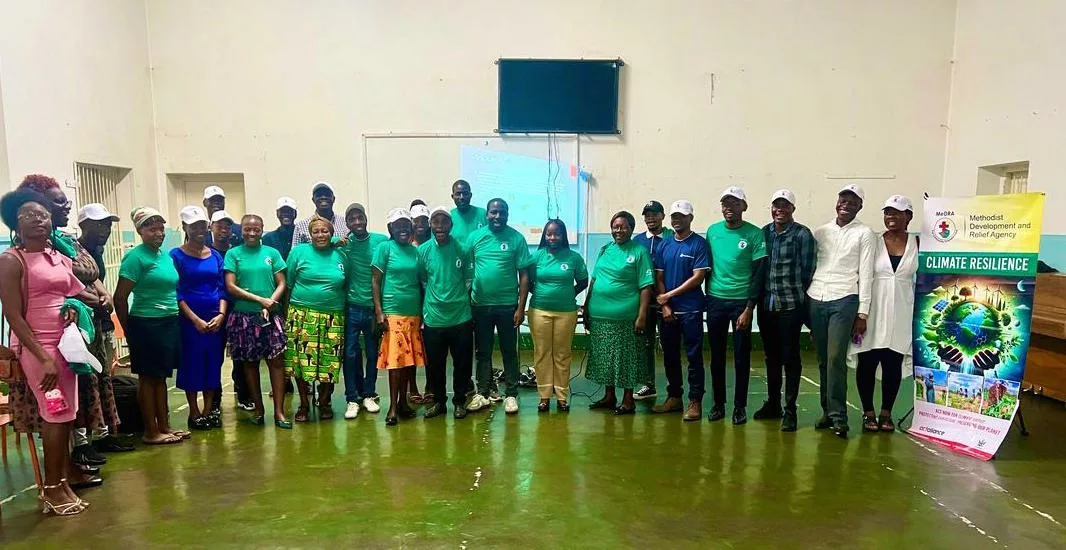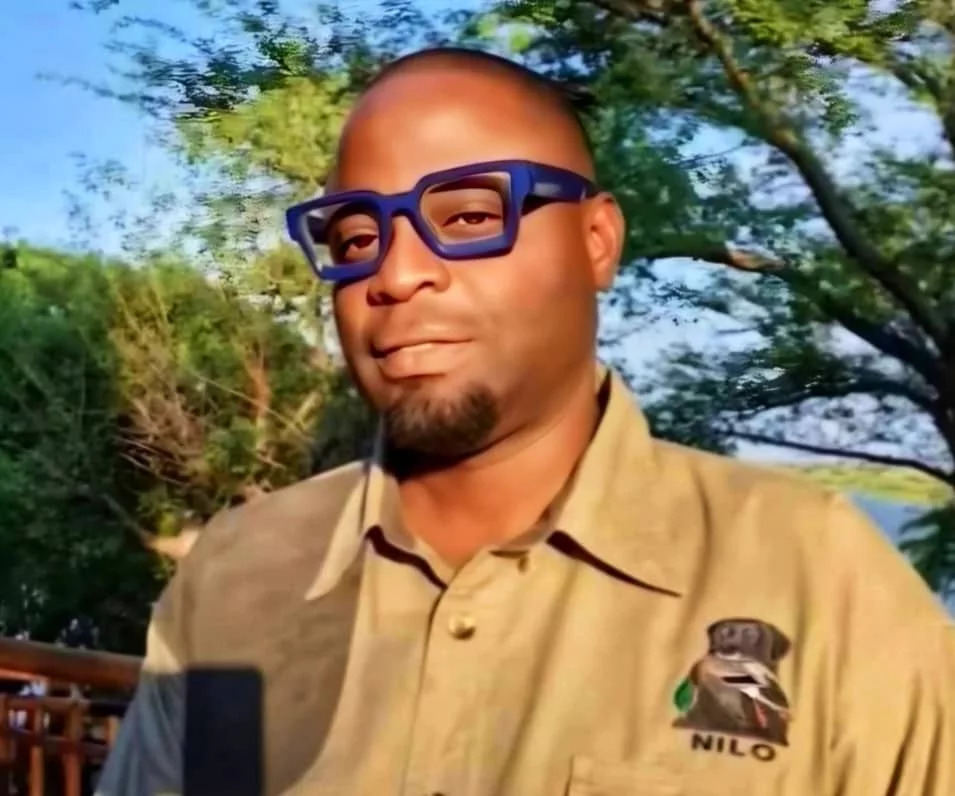|
Getting your Trinity Audio player ready...
|
As the impacts of climate change become increasingly evident, the role of faith leaders in climate adaptation has gained significant importance. Faith communities, guided by their values and teachings, have the potential to influence public opinion, mobilize resources, and foster community resilience. On 23 April 2025, the Methodist Development and Relief Agency (MeDRA), in partnership with ACT Alliance, convened a multi-faith intergenerational dialogue on the climate adaptation program at Methodist Trinity Hall in Harare.
The program was attended by more than 30 participants from different Christian denominations and African Traditional Religions (ATR). The objectives of the meeting were:
- Bridge the knowledge gap between youth and senior faith leaders on climate adaptation.
- Empower young faith actors with advocacy and leadership skills for climate resilience
- Encourage youth-led climate initiatives within faith communities
- Foster intergenerational collaboration, ensuring the sustainability of faith-based climate adaptation efforts
- Develop an action plan for continued youth engagement in climate advocacy and policy influence
It was noted that Faith leaders possess a unique moral authority that can inspire action on climate change. Many religious teachings emphasize stewardship of the Earth, care for creation, and the responsibility to protect vulnerable populations. Wellington Madumira from Climate Action Network Zimbabwe added that, by framing climate adaptation as a moral imperative, faith leaders can motivate their congregations and communities to engage in sustainable practices and advocate for climate justice.
He added that Faith communities are often at the heart of local social networks. Faith leaders can mobilize their congregations to participate in climate adaptation initiatives, such as community gardening, water conservation projects, and disaster preparedness training. Faith leaders should leverage their influence, and foster a sense of collective responsibility and action among community members.
Tariro Washaya, Programs Manager with MeDRA, said that addressing climate adaptation challenges requires a multifaceted approach that combines innovative solutions, community involvement, and strong policy frameworks. She added that by focusing on resilience and sustainability, communities can better prepare for the impacts of climate change. The economy of Zimbabwe relies heavily on agriculture, making it essential to adapt farming practices to changing climate conditions. This can help secure food sources and livelihoods.
Sheperd Zvigadza, Coordinator of SARCAN said that increasing temperatures and changing precipitation patterns threaten water supplies, i.e., adaptation strategies focused on water management are vital for sustaining agriculture and human consumption.
Faith leaders play a critical role in educating their communities about climate change and its impacts. Through sermons, workshops, and community events, they can raise awareness about the importance of climate adaptation and sustainable practices.
This education can empower individuals to make informed choices that contribute to resilience and sustainability. Many faith leaders are actively engaged in advocacy efforts at the local, national, and international levels. Faith leaders can collaborate with environmental organizations and policymakers, and they can influence climate policies that promote adaptation and resilience.
Their involvement in advocacy also highlights the interconnectedness of social justice and environmental sustainability, addressing the needs of marginalized communities disproportionately affected by climate change. One of the participants noted the need for interfaith dialogues and partnerships that can amplify voices and create a unified front for climate action. These collaborations not only enhance the effectiveness of adaptation efforts but also foster understanding and solidarity among diverse communities.
One of the faith leaders, Rev. Chiweshe from the Baptist Church, who was present at the meeting, encouraged Zimbabweans to respect the environment. He added that climate change and religion are interconnected. Religious narratives can offer hope and resilience in the face of climate challenges, encouraging believers to work towards a better future. Many religious traditions emphasize stewardship of the Earth, promoting the idea that humans have a responsibility to care for creation. This can motivate followers to engage in environmental activism.
Simbarashe Sinamani, outgoing Methodist Church in Zimbabwe Youth President, a participant, said that faith leaders have to put pressure on climate change awareness, simulating what they have done on child marriages. Davidzo Chibi, one of the youth participants, added that there is a need to practice water harvesting initiatives at the household level up to the national level. This is in line with the government’s mantra of constructing dams nationwide. Tanatswa Hokonya, an active Youth member in the Methodist Church emphasised the need to leverage technology to share climate adaptation messaging for wider involvement of the youth.
The meeting agreed to the following as the potential solution to climate adaptation in Zimbabwe:
- Invest in infrastructure that can withstand extreme weather, such as flood-resistant buildings and improved drainage systems.
- Implement rainwater harvesting, efficient irrigation, and the reuse of treated wastewater to cope with water scarcity.
- Develop funding models, such as climate bonds and insurance schemes, to finance adaptation projects.
- Involve local communities in planning and decision-making to ensure that solutions are culturally appropriate and effective.
- Protect and restore natural ecosystems (e.g., wetlands, forests) to enhance resilience against climate impacts.
- Foster collaboration across sectors and levels of government to create cohesive and comprehensive adaptation policies.
- Engaging in training programs that empower individuals to act responsibly and contribute effectively to climate discourse, fostering a generation of eco-conscious citizens.
- Utilising technology in climate actions can enhance awareness and mobilisation.
- Social media and youth involvement are vital in spreading awareness and advocating for effective climate solutions.
Faith leaders are crucial allies in the fight against climate change, particularly in the realm of adaptation. Leveraging their moral authority, engaging communities, advocating for policy change, and fostering interfaith collaboration, can significantly contribute to building resilience in the face of environmental challenges. As the world continues to grapple with the impacts of climate change, the involvement of faith leaders will be essential in guiding communities toward a more sustainable and equitable future.






